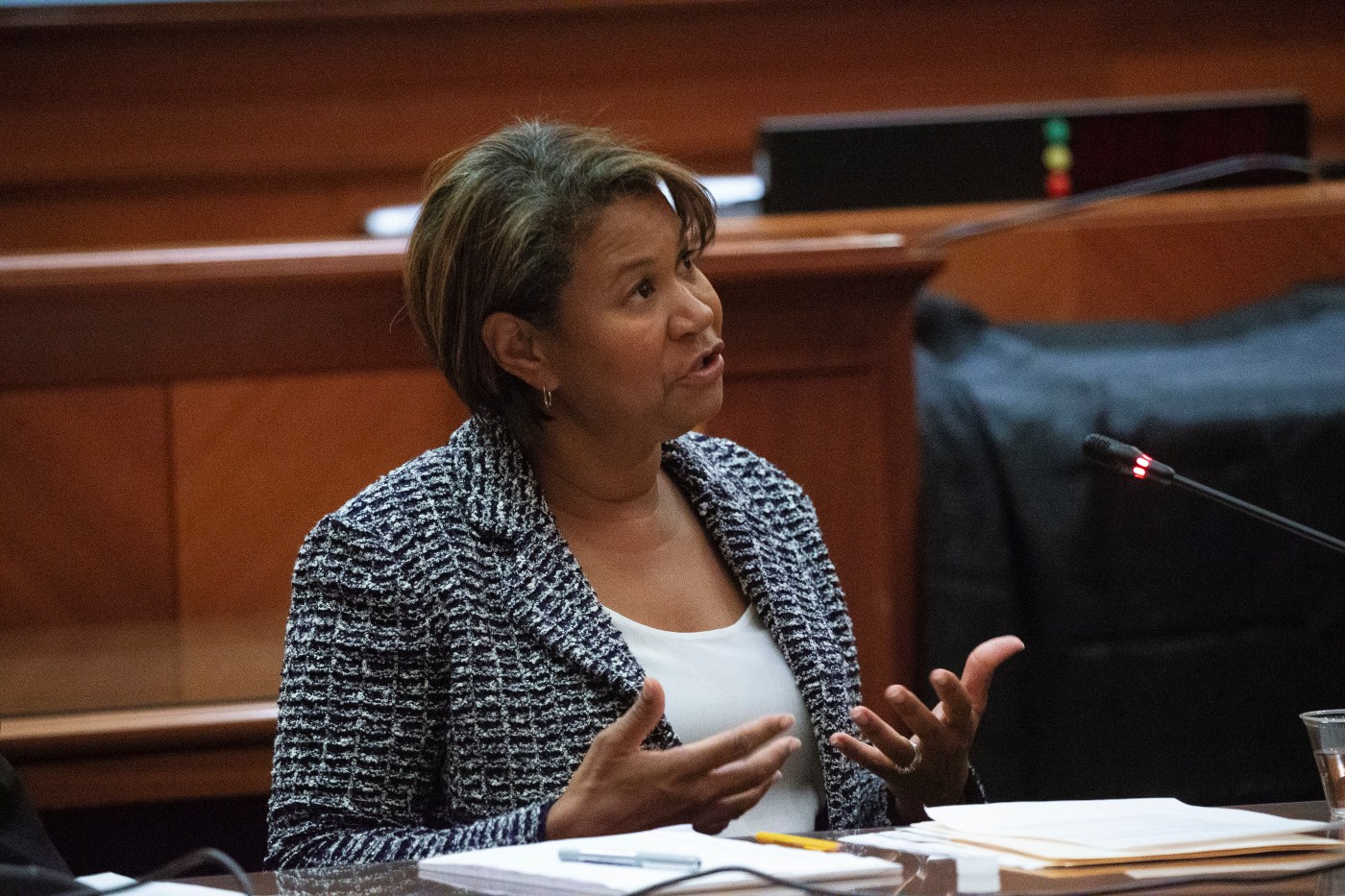
Confidence and trust in court system faltering, says Massachusetts SJC chief justice
Public trust and confidence in state and federal judicial systems is falling at an alarming rate, and it’s an essential issue that must be addressed for court systems to operate at their best, the chief justice of Massachusetts’ top court said.
“Alexander Hamilton called the judiciary the weakest branch of government. We wield no power of our own, but for the power that others give us by respecting our decisions,” Supreme Judicial Court Chief Justice Kimberly S. Budd said at her State of the Judiciary address Tuesday afternoon. “Unfortunately today there are serious signs that respect for the courts is declining across the country.”
She said that polls on the judicial system at both the state and federal level show precipitous falls in confidence and trust — with many focus group interviewees saying they believe “two systems of justice exist. There is one system with those with influence, connections and power and another one for everyone else.
Others felt that the courts are “too bureaucratic and difficult to navigate” or that race was a contributing factor in outcomes, she added.
“Above all, there is a sense that courts are disconnected and out of touch with the people and local communities that they serve rather than providers of justice for all,” she said.
The National Conference of Chief Justices released a report in August that analyzed polls and found that the “the percentage of people who believe that state courts provide equal justice for all, well or very well has declined from 62% to 46% in the last ten years,” she said.
The story is the same for the federal level. Budd, citing Gallop poll data, said the percentage of Americans who have “a great deal or fair amount of trust and confidence in the federal judiciary has fallen from a high of 80 in 1999 to 48%.”
Fixing the issue
Budd said that the court system “must emphasize accountability and transparency in our operations and remind the public that we are subject to a code of ethics.”
She said that in Massachusetts, the system has been working to improve accessibility and piloting programs for diversion and mental health. She said Massachusetts boasts more than 60 specialty courts that focus on substance use disorders, mental health issues, veterans, and the homeless population.
The court system is also making sweeping tech upgrades funded by a 2022 IT bond bill — those include public Wi-Fi in the courthouses, more resources being made available online, and security enhancements — as well as providing more remote hearing opportunities.
“I believe that all of these initiatives are making a difference and I look forward to continuing the work with all of our internal and external stakeholders,” Budd said.

